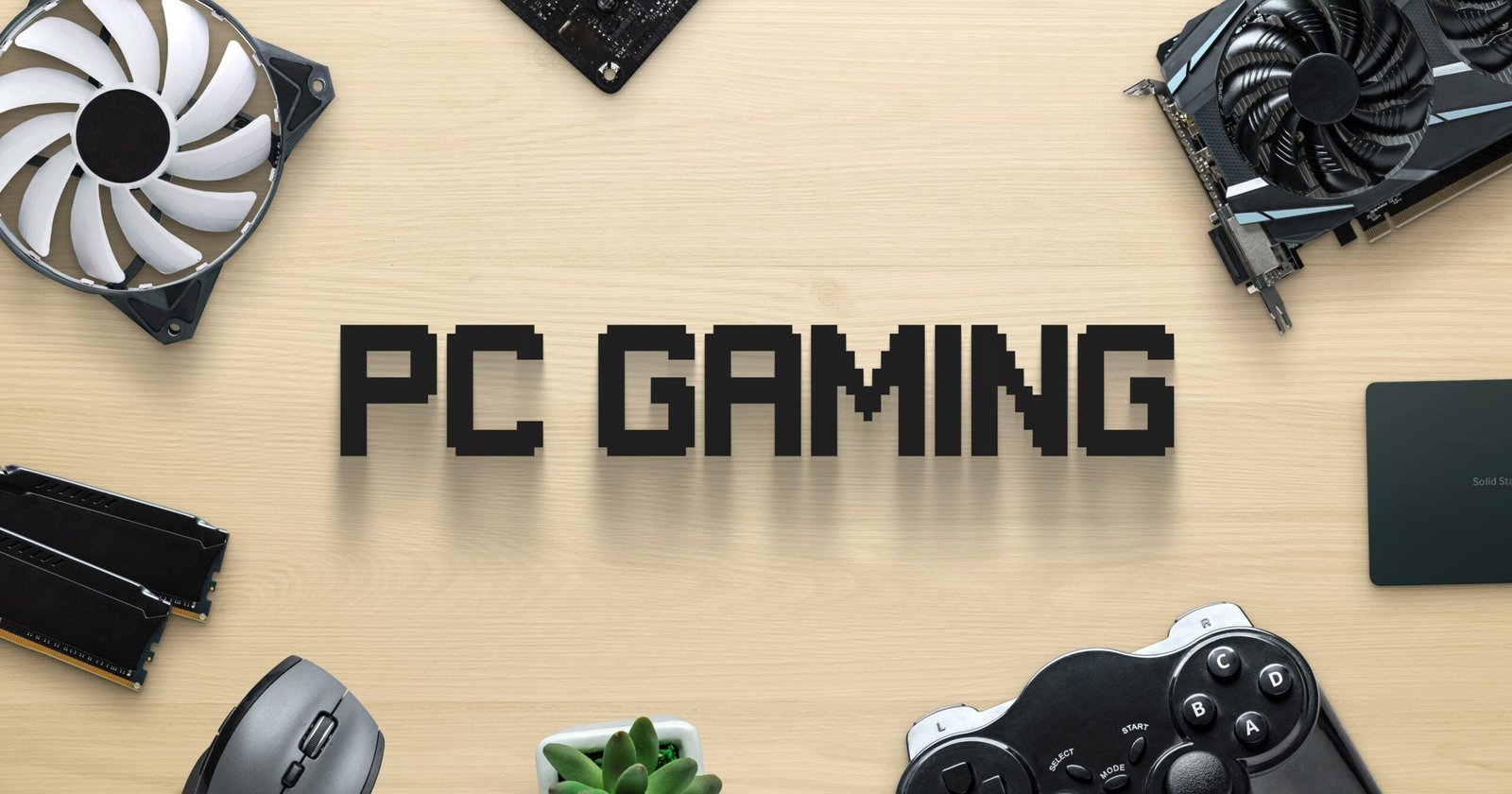How Much Does a Gaming PC Weigh? In the case of a budget-friendly gaming or consumer computer, the weight typically falls within the range of 20-30 pounds. However, when you begin to incorporate a full-sized case, multiple GPUs, numerous hard drives, additional fans or water cooling, and a large CPU cooler, the total weight can quickly escalate to 60-80 pounds.
Gaming PCs are a critical component of the gaming experience, offering the processing power and graphics capabilities needed to run modern games at high settings. However, one aspect that is often overlooked is the weight of a gaming PC.
In this comprehensive guide, we will delve into the weight of a gaming PC, discussing its factors, implications, and considerations when transporting or setting up a gaming rig.
Introduction
The weight of a gaming PC is determined by a combination of components and the casing itself. Typically, a gaming desktop can range between 20 to 50 pounds.
However, how much does a gaming PC weigh? This can vary significantly based on the parts used, such as the motherboard, graphics card, cooling system, and power supply unit.
Additionally, larger cases for increased airflow or aesthetics can contribute to the overall weight. The build quality and material of the case, such as metal or plastic, will also play a significant role.
The Significance of Weight in a Gaming PC
The weight of a gaming PC holds significance in several ways. First, it impacts the portability of the system. A heavier PC will be more difficult to transport, which may concern gamers who frequently attend LAN parties or gaming tournaments.
Secondly, the weight can also indicate the quality of the components used. Heavier components are often more robust and durable, indicating a higher quality build.
Lastly, weight can affect the placement of the gaming system. A heavier system will require a sturdier desk or table to support it, which is essential to consider when setting up your gaming space.

Portability and Mobility
Exploring how the weight of a gaming PC affects its portability and ease of moving it from one place to another.
Transportation and Setup
Discussing the implications of weight in terms of transportation, setup, and potential challenges that might arise.
Factors Influencing the Weight of a Gaming PC
A variety of factors can influence the weight of a gaming PC. One of the major factors is the components used in the PC.
The choices of a motherboard, graphics card, power supply unit, cooling systems, and storage devices and how much a gaming PC weighs all contribute to the overall weight.
For instance, high-end graphic cards and power supplies tend to be heavier due to their robust build quality and advanced capabilities.
Secondly, the PC case also plays a significant role. Cases made of metal are generally heavier than those made from plastics or other lightweight materials. Additionally, the size and design of the case impact the weight; larger cases designed for better airflow or aesthetic appeal tend to be heavier.
Finally, additional accessories like cooling fans, liquid cooling systems, or sound cards can add to the system’s weight. These factors, combined with the type of material used for the case, make the weight of a gaming PC highly variable.
Components and Hardware
Detailing how individual components such as the case, motherboard, power supply, graphics card, cooling systems, and storage devices impact the overall weight.
Form Factor
Discuss how the form factor of the PC, whether it’s a mini-ITX, mid-tower, or full-tower, affects the weight due to size and material differences.

Understanding Component Weights
The weight of individual components forms a significant chunk of the overall weight of a gaming PC. First, the motherboard, which is the backbone of the computer, can weigh between 1 and 3 pounds depending on its form factor and build quality. Next, graphics cards — integral in providing high-end gaming performance — can weigh anywhere from 2 to 5 pounds, depending on their capabilities and cooling solutions.
Power supply units (PSUs) also add substantial weight, with high-quality, high-wattage PSUs often weighing over 4 pounds. Hard drives, HDDs, and SSDs are lighter, at around 1.3 pounds and a few ounces.
The cooling solution can vary markedly in weight: a simple fan may only weigh a few ounces, whereas a comprehensive liquid cooling system can weigh several pounds. Lastly, the PC case itself can dramatically alter the weight of the gaming PC, with lightweight plastic cases weighing as little as 6-7 pounds, while larger, robust metal cases can tip the scales at over 20 pounds.
Graphics Card
Detailing the weight variations of different graphics cards based on size, cooling solutions, and material.
Case
Explaining how the case material, size, and design affect the weight of the gaming PC.
Power Supply Unit (PSU)
Discussing the weight variations in power supply units based on wattage and efficiency ratings.
Cooling Systems
Exploring the weight differences in cooling systems, including air and liquid cooling solutions.
Motherboard and Other Components
Discussing the weight contribution of the motherboard, storage devices, memory (RAM), and other peripherals.
Weight Ranges of Gaming PCs
The weight of gaming PCs can vary tremendously, depending largely on the specific components and build materials.
A compact gaming PC with lightweight components may weigh approximately 20 pounds on the lighter spectrum.
These systems often employ smaller form factors such as mini-ITX cases, lower-wattage power supplies, and less heavy-duty cooling solutions.
Lightweight Gaming PCs
Discussing the weight range for lightweight gaming PCs, focusing on mini-ITX form factors and lower-end components.
Mid-Range Gaming PCs
Exploring the weight range for mid-range gaming PCs, considering mid-tower form factors and mainstream components.
High-End Gaming PCs
Detailing the weight range for high-end gaming PCs, typically featuring full-tower cases and high-performance components.
Overcoming Weight-Related Challenges
Offering solutions and tips for managing the weight of a gaming PC and addressing potential challenges.
Optimizing Component Selection
Providing advice on choosing lighter components without compromising on performance.
Investing in Portable Solutions
Discuss portable gaming setups and peripherals that can help mitigate the challenges of transporting heavy gaming PCs.
Proper Lifting and Handling Techniques
Offering guidance on how to lift and handle a gaming PC safely to prevent injury or damage.
Gaming PCs vs. Consoles: A Weight Comparison
Comparing the weight of gaming PCs to popular gaming consoles and discussing the implications of weight in gaming.
Gaming PC vs. Console Weight
Comparing the average weight of a gaming PC to that of popular gaming consoles.
Portability and Versatility
Discuss how the weight of gaming PCs and consoles affects their portability and versatility for different gaming scenarios.
Emerging Trends in Reducing Gaming PC Weight
With constant advancements in technology, there are emerging trends to make gaming PCs lighter while maintaining their performance.
One of the significant trends is the miniaturization of components. Manufacturers are increasingly focusing on designing smaller; how much does a gaming PC weigh lighter components without sacrificing their capabilities? For example, the advent of M.2 SSDs has allowed faster storage solutions that occupy less space and weigh less than traditional hard drives.
Similarly, shifting towards more efficient cooling solutions, such as low-profile air coolers and smaller, efficient PSUs, reduces the overall weight.
Moreover, advancements in materials science have led to lightweight materials like aluminum and tempered glass in PC cases, which offer durability and weight reduction.
Advancements in Components
Discuss how advancements in materials and manufacturing processes contribute to lighter and more efficient components.
Compact and Efficient Designs
Highlighting how compact and efficient designs reduce gaming PCs’ overall weight while maintaining performance.
Conclusion
How Much Does a Gaming PC Weigh? Summarizing the significance of understanding the weight of a gaming PC and its impact on the gaming experience? Encouraging gamers to consider weight a crucial factor when building or choosing a gaming PC.
FAQs
How much does a PC weigh in kg?
The weight of a PC can vary significantly based on its components. On average, how much does a gaming PC weigh? A desktop computer can weigh anywhere between 9 to 20 kilograms. However, lightweight mini-ITX systems may weigh less, while high-end gaming setups with robust components could be substantially heavier.
How much does a full PC weigh?
The weight of a full PC setup, including a monitor, keyboard, mouse, and other peripherals, can range between 20 to 40 kilograms. However, this can vary significantly depending on the components and accessories included.
Is a 500-pound gaming PC good?
A 500-pound gaming PC is highly unusual and likely impractical for most users. Generally, such a weight could indicate the use of exceedingly heavy components or an exceptionally large case. Balancing performance with practicality is crucial when building or choosing a gaming PC.
Why are gaming PCs so heavy?
Gaming PCs are heavy due to the robust components they house, such as high-performance processors, graphic cards, cooling systems, and power supplies. Additionally, the materials used for the structure, such as metal for the case, significantly contribute to their weight.









